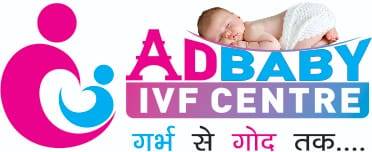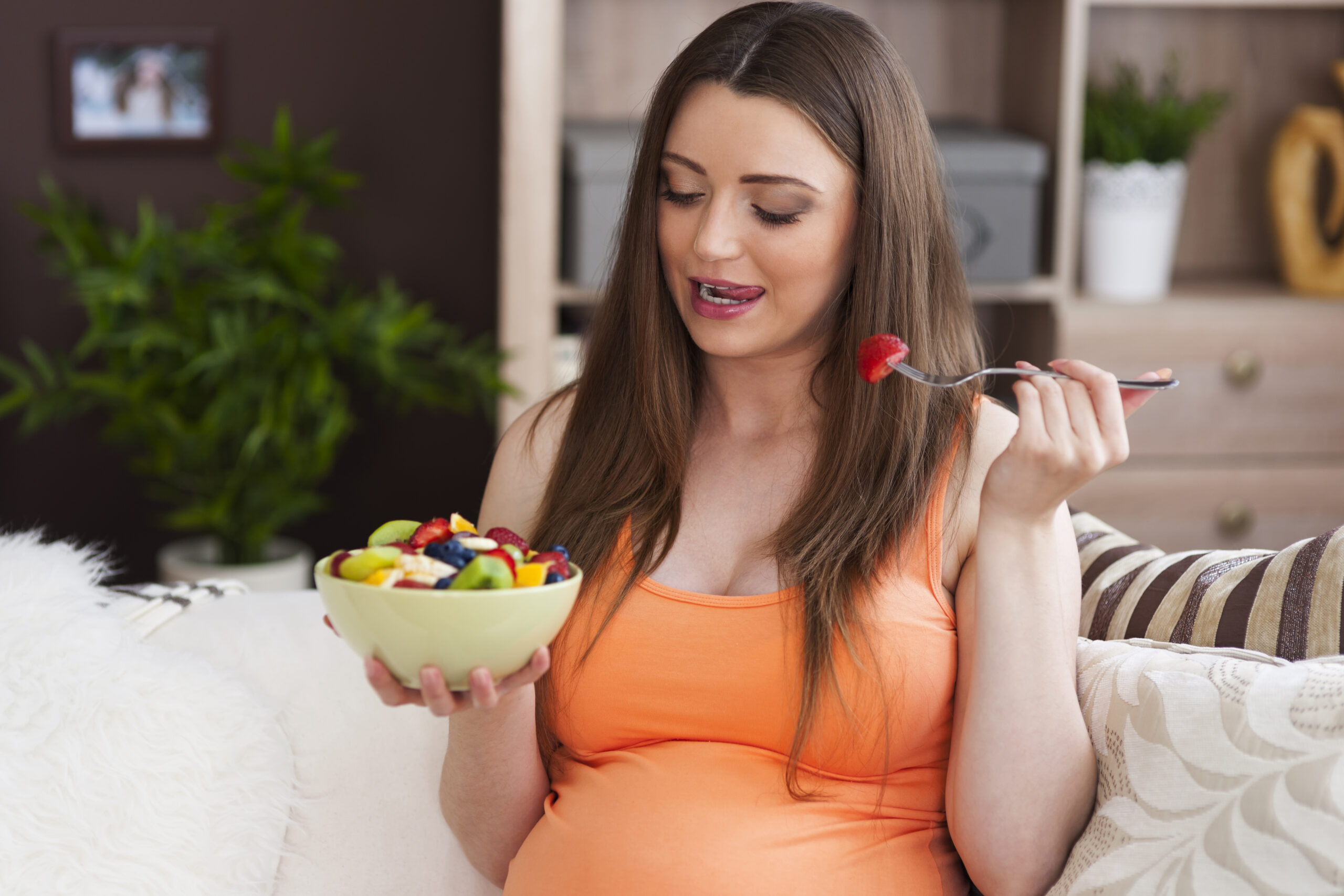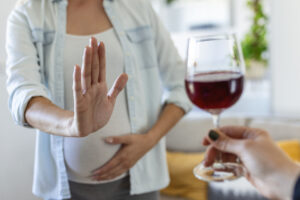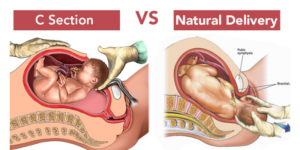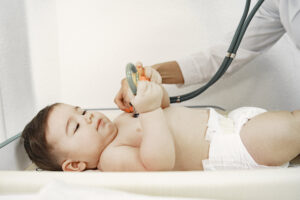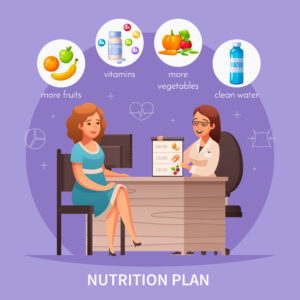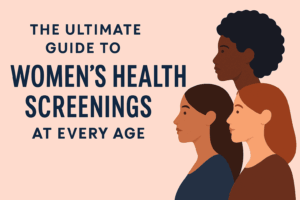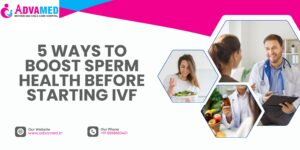When you get ready for IVF, every little thing counts. Diet and nutrition during IVF are key, but so is the food you eat. A good diet helps your body. It can improve your eggs and raise your chance of getting pregnant. Food can’t promise success, but smart choices create the best conditions for your treatment to work.
This guide will show you how food affects IVF. We will cover what foods to eat and what to avoid. You will also get easy meal ideas you can try right away.
How Diet Affects Fertility and IVF Outcomes
Eating right isn’t just about being healthy. It’s about eating smart for your fertility. Studies show that the food you eat for months before IVF can impact:
- Egg and Sperm Health – Antioxidants and omega-3s protect eggs and sperm from damage.
- Hormone Balance – Stable blood sugar and good fats help your hormones work right.
- Uterine lining: Certain vitamins and minerals help prepare the uterus for implantation.
- Overall health: A strong, nourished body is better able to handle the physical and emotional stress of IVF.
In simple terms, the food you eat during IVF can help make your eggs and embryos healthier. It can also help an embryo attach and grow. Healthy lifestyle choices during pregnancy support your baby’s growth, reduce complications, and promote your overall well-being.
Recommended Foods to Include During IVF
Picking the right foods makes your body stronger. It creates a better environment for fertility. Here are the most important food groups to eat:
1. Leafy Greens and Folate-Rich Foods
Folate (vitamin B9) is vital for DNA synthesis and early fetal development. It helps build DNA and supports a baby’s early growth. You can get it from foods like spinach, kale, and lentils. Eating these foods helps you meet your needs. Most doctors also recommend a folic acid supplement during IVF treatment.
2. Omega-3 Fatty Acids
Healthy fats, especially omega-3s, play a key role in fertility. They help reduce inflammation and support the growth of eggs and embryos. Good sources include salmon, sardines, flaxseeds, chia seeds, and walnuts. If you don’t eat fish, ask your doctor about a plant-based omega-3 supplement.
3. Lean Proteins
Protein is essential for your overall health and for a baby’s growth. It helps repair tissues, balance hormones, and support development during pregnancy. Include protein-rich foods such as eggs, chicken, lentils, beans, tofu, and paneer. When eating fish, choose varieties that are low in mercury.
4. Whole Grains and Low-Glycemic Carbs
Keeping your blood sugar steady is important during IVF. Choose whole grains such as oats, quinoa, and brown rice, as well as millets like ragi, jowar, and bajra. These foods release energy slowly, helping prevent sugar spikes that may affect ovulation and implantation.
5. Colorful Fruits and Vegetables
Antioxidants help protect your reproductive cells from damage. They’re abundant in foods like berries, oranges, peppers, beetroot, and carrots. Aim to “eat a rainbow” of colorful fruits and vegetables each day to enjoy a variety of vitamins and nutrients.
6. Healthy Fats
Along with omega-3s, include other healthy fats in your diet. They support hormone production and overall fertility. Good options include olive oil, avocado, almonds, cashews, and small amounts of ghee.
Pro Tip: Drink plenty of water. It helps your blood flow and builds a healthy uterine lining. This is very important for IVF.
Foods and Habits to Avoid During IVF
What you don’t eat is just as important as what you do. Some foods and habits can get in the way of your treatment. It’s best to cut them out or have less of them..
1. Processed and Fried Foods
Chips, fried snacks, and packaged cookies often have trans fats. These fats cause swelling and can hurt your egg quality. It’s better to choose homemade or baked snacks instead.
2. Excess Sugar and Refined Carbs
Sugary drinks, candies, and white bread can cause sharp spikes in blood sugar, which may lead to insulin issues. This can affect ovulation and embryo quality. Choose healthier alternatives, like fresh fruit or a handful of nuts, instead.
3. Red and Processed Meats
Eating a lot of processed meat, like hot dogs or bacon, can lower your chances of success. If you eat meat, choose lean chicken or fish. Try to not eat too much red meat.
4. Alcohol and High Caffeine
Alcohol can disrupt your hormones and increase the risk of miscarriage. Excess caffeine may also make it harder for an embryo to implant. For the best outcomes, avoid alcohol completely and keep caffeine to less than one regular cup of coffee per day.
5. Raw or Undercooked Foods
Avoid raw fish, sushi, undercooked eggs, and unpasteurized dairy, as these may carry bacteria that could interfere with IVF or early pregnancy. Always cook food thoroughly.
Avoiding these foods helps create a safer, healthier place for a baby to grow. Pregnancy care is very important for the healthy baby.
Sample Meal Ideas for IVF Nutrition
Making a healthy plate every day can be tough. Here are some easy meal ideas with fertility-friendly foods:
- Breakfast – Oats with chia seeds, walnuts, and berries.
- Morning Snack –Apple with almond butter.
- Lunch – Brown rice with grilled salmon (or paneer) and spinach.
- Afternoon Snack – Roasted chickpeas or a banana smoothie.
- Dinner – Whole wheat chapati with lentils and veggies.
- Drinks – 7 to 8 glasses of water, coconut water, or herbal tea.
These ideas can be adapted to your preferences, but the goal is variety and balance.
Practical Tips for Success
- First, plan your meals for the week. This helps you avoid unhealthy last-minute choices.
- Next, swap one processed snack each day. Try fruit or nuts instead.
- Then, choose healthier ways to cook your food. Steam, bake, or sauté instead of frying.
- Also, keep track of how much caffeine you drink. If you have several cups a day, try to slowly drink less.
- Finally, always talk to your doctor first before starting any new supplements.
Conclusion: Building the Right Nutrition Plan for IVF
IVF is tough on your body and mind. You can’t control everything. But you can control your food. Eating healthy foods and avoiding bad ones helps a lot. It gives your body the best shot at growing healthy eggs and helping a baby implant.
Remember, diet and nutrition during IVF is not a one-size-fits-all approach. Everyone’s body is different, and factors like weight, medical conditions, and lifestyle all play a role. That’s why it’s always best to work with your fertility specialist or a trained nutritionist to create a personalized plan.
At Advamed Hospital & Adbaby IVF Centre, we offer more than just IVF treatment. We provide full support, including food advice. Our goal is to help you on your journey to become a parent.
FAQs
Yes. At Advamed Hospital & Adbaby IVF Centre, we have fertility specialists and nutrition counselors who guide patients on the right diet before and during IVF. The advice is personalized, based on your health profile, lab reports, and treatment plan.
Our team generally recommends a balanced, Mediterranean-style diet — rich in fresh vegetables, fruits, whole grains, lean proteins, and healthy fats. We also focus on foods that improve egg quality, uterine lining health, and hormonal balance.
Supplements like folic acid, vitamin D, and omega-3 fatty acids can support fertility, but they must be taken only under medical supervision. At Advamed Hospital & Adbaby IVF Centre, Dr. Nupur Sharma reviews your blood work and prescribes supplements suited to your specific needs.
We advise patients to avoid alcohol, smoking, high caffeine, raw or undercooked foods, and processed or deep-fried foods. These can negatively affect hormone balance, egg quality, or early pregnancy safety.
Along with advanced IVF technology, Advamed Hospital & Adbaby IVF Centre provides end-to-end care including fertility assessments, personalized treatment planning, emotional support, and post-treatment guidance. Nutrition counselling is just one part of our holistic approach to improve your chances of success.

